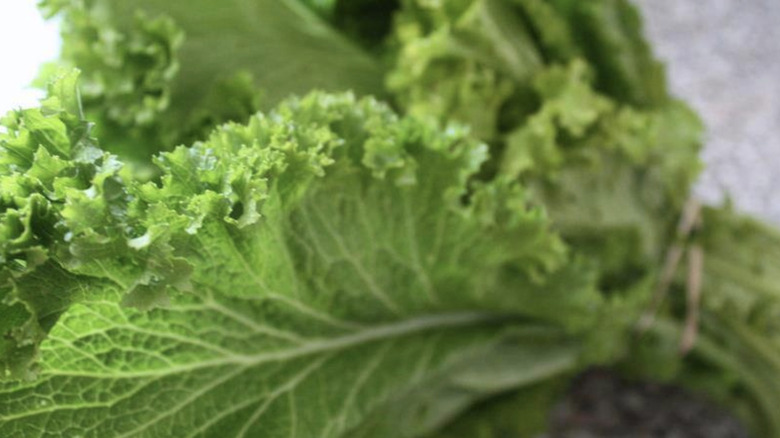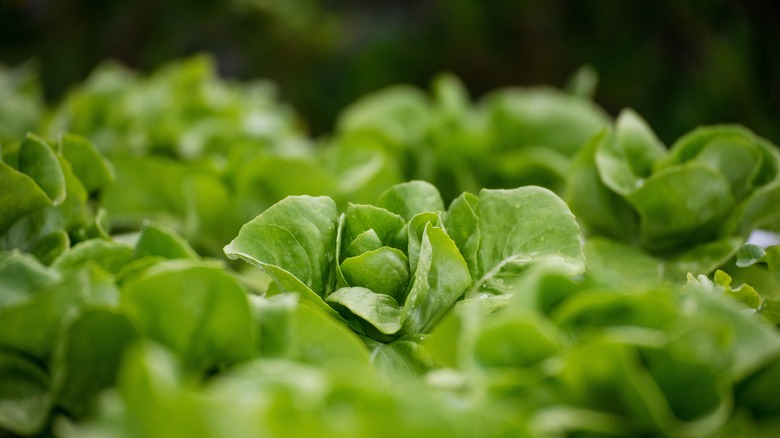A Startup Is Gene-Editing Veggies To Make Them Taste Better
Are you someone who naturally loves to eat veggies, or someone who begrudgingly shoves your greens into a smoothie, hoping to mask the taste? If you fall into the latter camp, you may be interested in gene-edited vegetables. One startup company called Pairwise has successfully edited mustard greens to be just as nutritious, without the harsh bitterness that naturally occurs in the green. Many people simply cook or stew the greens, but cooking veggies may lead to consuming a less nutritious version of the vegetable. The scientists at Pairwise used the gene-editing tool CRISPR to remove the gene that causes the bitter taste.
The company will release the altered greens to the masses, starting in certain restaurants in St. Paul, Minnesota, Springfield, Massachusetts, and St. Louis. The company hopes to expand the greens to be sold in retail grocery chains by this summer. The goal is to make the greens palatable, so people use them as a salad base instead of greens with limited nutrition, like iceberg and butter lettuce. The new greens packaged variety will be called Conscious Green, which will be part of a larger food line, Conscious Foods. Conscious Foods will be producing more gene-edited fruits and vegetables in the future, with the goal of getting people to eat healthier, and more sustainably.
What is gene editing?
Unlike genetically modified vegetables, which have gotten kind of a bad rap, genetically edited foods simply remove one of some of the plant's own DNA. GMOs rely on adding in foreign DNA from a completely different species. Aside from not adding in foreign DNA, gene editing occurs much quicker than the GMO process. Mustard greens only took four years from conception to be ready to eat, whereas GMO plants can take more than a decade to be ready for consumption. One of the cons of GMOs is that they are required by law to be labeled as "bioengineered." Since genetically edited foods could naturally occur, the foods don't have to be specially labeled.
After the mustard greens launch, the goal is for Conscious Foods to roll out genetically edited cherries without pits, and seedless blackberries and raspberries. Instead of having to wait for each fruit's limited seasonality, the goal is to make the fruits available year-round. As for the future of genetically edited food, the possibilities are seemingly endless. Crispr is already being used to help modify corn to have even more kernels, and one Japanese company used the device to craft a tomato high in GABA amino acid.

